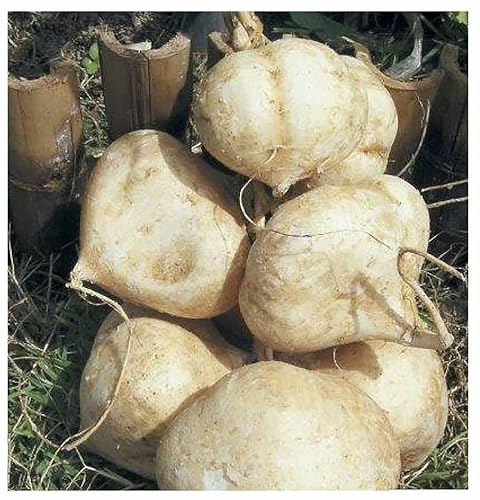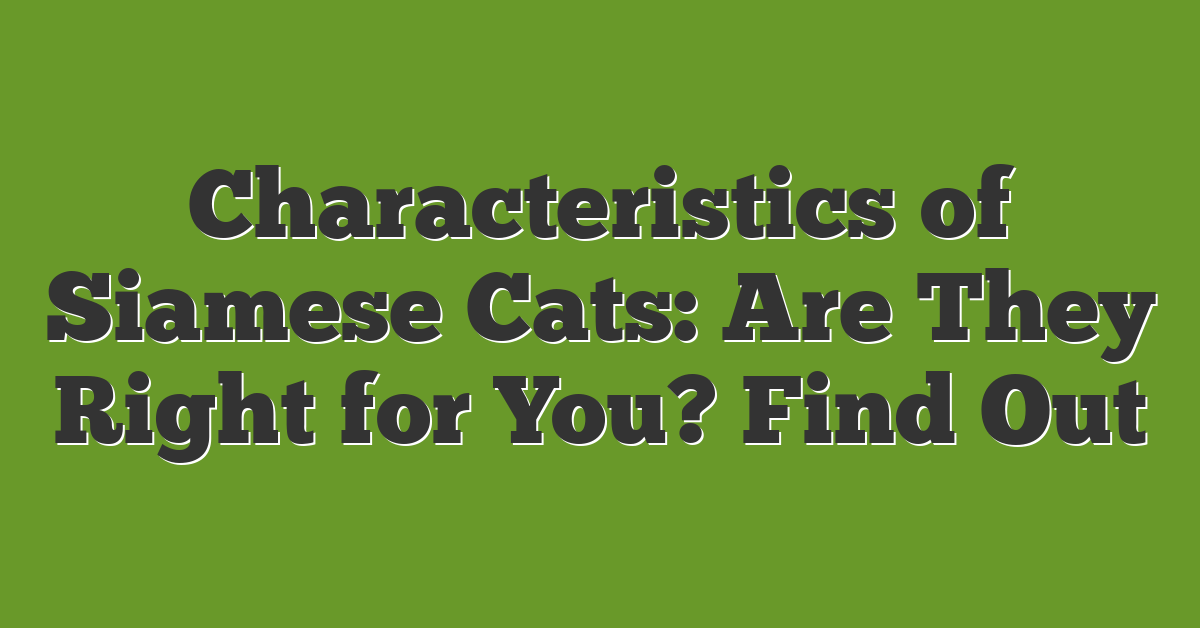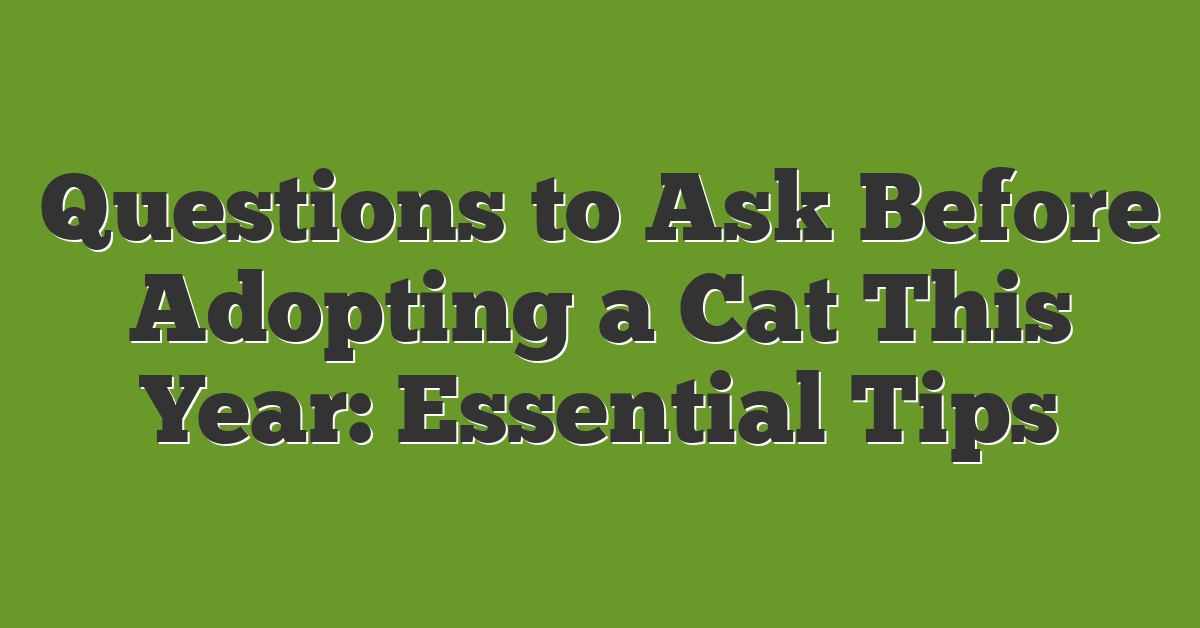What is Jicama?
Jicama is a delicious vegetable that is enjoyed by humans in many different dishes. It has a crunchy texture and a mild flavor that can add a nice touch to salads, stir-fries, and even as a healthy snack. But what about our furry friends? Can cats safely eat jicama?
Jicama, also known as the Mexican potato or yam bean, is a root vegetable that is low in calories and high in fiber. It’s a great source of vitamins and minerals like vitamin C, potassium, and magnesium. However, when it comes to cats, their dietary needs are quite different from ours.
Cats are obligate carnivores, which means their bodies are designed to thrive on a diet that consists mainly of meat. While jicama may not be toxic to cats, it doesn’t provide the essential nutrients that they need to stay healthy. Cats require essential amino acids, like taurine, which are found primarily in animal tissues.
Feeding your cat a balanced diet that includes high-quality cat food is crucial to their overall health and wellbeing. Cats need a diet that is specifically formulated to meet their nutritional requirements. In order to ensure that they are getting everything they need, it’s best to stick to cat-friendly foods that are recommended by veterinarians.
While you may be tempted to share your jicama snacks with your feline friend, it’s important to prioritize their health and give them the proper nutrition they need. If you have any concerns about your cat’s diet or if you’re considering introducing new foods, it’s always best to consult with your veterinarian.
Remember, being a responsible and loving cat owner means making informed decisions about your cat’s diet and ensuring that they have everything they need to live a happy and healthy life.
So, while jicama may be a tasty treat for us humans, it’s best to save it for yourself and stick to cat-friendly foods for your feline companion.
Nutritional Value of Jicama
Jicama may be a tasty treat for humans, but as a cat lover, you might be wondering if it’s safe for your feline friend to eat. Let’s take a closer look at the nutritional value of jicama for cats.
While jicama is low in calories and fat, cats have different dietary needs as obligate carnivores. They require essential nutrients that can only be obtained from animal products. Jicama does not provide these necessary nutrients, such as taurine and arachidonic acid, which are crucial for a cat’s overall health and well-being.
- Cats need a balanced diet that consists mainly of high-quality animal protein. Feeding them a varied diet of specialized cat food recommended by veterinarians ensures they receive the proper nutrition.
- Jicama lacks the essential amino acids, vitamins, and minerals that cats need to thrive.
- Cats rely on a diet rich in animal tissue to fulfill their unique nutritional requirements, including amino acids like taurine, which is vital for their cardiovascular health and eyesight.
- The high fiber content in jicama can potentially upset a cat’s delicate digestive system, leading to gastrointestinal issues such as diarrhea or constipation.
- It’s crucial to prioritize your cat’s health and well-being by providing them with a diet that meets their specific needs. Consult with your veterinarian for any concerns about your cat’s diet.
- Remember, it’s always best to stick to cat-approved treats and foods, rather than risking their health by sharing human food that may not be suitable for them.
As a responsible cat owner, it’s important to make informed choices when it comes to what you feed your furry companion. Opt for a nutritious diet specifically designed for cats to ensure they receive all the essential nutrients they need to stay healthy and happy.
Can Cats Eat Jicama?
As a cat lover, you may be wondering if your feline friend can safely enjoy jicama. While it may be tempting to share your favorite veggies with your furry companion, it’s important to consider their unique dietary needs.
Cats are obligate carnivores, which means their bodies are designed to thrive on a diet consisting mainly of animal protein. They require specific nutrients found in meat to stay healthy and happy. Unfortunately, jicama falls short in providing these essential nutrients.
Jicama is low in calories and fat, which might make it seem like a healthy option for cats. However, it lacks the necessary amino acids, vitamins, and minerals that cats need to thrive. These nutrients are crucial for their overall well-being, immune function, and organ health.
Moreover, jicama is known for its high fiber content, which can potentially cause gastrointestinal issues in cats. Their delicate digestive systems may not be equipped to handle excessive amounts of fiber, leading to diarrhea, bloating, or discomfort.
So, while it’s important to prioritize your cat’s health, it’s best to avoid feeding them jicama. Instead, focus on providing them with a balanced diet of high-quality animal protein that meets their specific nutritional needs.
Consulting with a veterinarian is always a good idea when it comes to your cat’s diet. They can offer tailored advice and recommend the most appropriate commercial cat food that fulfills your cat’s requirements.
Remember, your cat’s well-being comes first. By providing them with a diet specifically designed for their needs, you’ll ensure they’re getting all the essential nutrients required to lead a happy and healthy life.
Potential Benefits of Jicama for Cats
If you’re a cat lover, you may be curious about what human foods are safe and beneficial for your furry friend. However, when it comes to jicama, it’s important to remember that cats have specific dietary needs that are different from ours. While jicama may have some health benefits for humans, it’s not the best choice for our feline friends. Here’s why:
- Low in calories and fat: Jicama is indeed low in calories and fat, which might make it seem like a healthy option for cats. However, it’s important to note that cats are obligate carnivores. This means they require nutrients found in meat to stay healthy and thrive.
- Lacking essential nutrients: Even though jicama is low in calories, it lacks essential nutrients that are vital for a cat’s overall health. These nutrients include taurine, arachidonic acid, and vitamin A. Without these nutrients, cats may develop various health issues, including heart problems, skin disorders, and even vision impairment.
- High in fiber: While fiber can be beneficial for humans, it’s important to be cautious when it comes to cats. Cats have a sensitive digestive system, and excessive fiber intake can potentially lead to gastrointestinal issues such as diarrhea, vomiting, and gas.
- Prioritize your cat’s health: Your cat’s health should always be the top priority. To ensure they receive the proper nutrition, it’s best to provide them with a balanced diet of high-quality animal protein. Consult with a veterinarian to determine the best cat food options that meet your cat’s specific nutritional needs.
Remember, a cat’s nutritional requirements are different from ours. While it may be tempting to share a bite of jicama with your feline friend, it’s best to stick to their regular cat food. By keeping their diet consistent and tailored to their needs, you can ensure your cat stays healthy and happy for years to come.
Source:
[5] Based on information from the ASPCA, cats require certain essential nutrients to maintain good health, such as taurine, arachidonic acid, and vitamin A, which are found in animal protein.
Precautions for Feeding Jicama to Cats
As a cat lover, it’s important to prioritize the health and well-being of your furry friend. While it can be tempting to share your favorite foods with your cat, it’s crucial to remember that cats have unique dietary needs. When it comes to jicama, there are a few precautions you should keep in mind before offering it to your feline companion.
1. Nutritional Deficiencies:
Cats are obligate carnivores, meaning their bodies are designed to thrive on a diet that primarily consists of animal protein. Jicama, on the other hand, lacks the essential nutrients that cats require to stay healthy. Feeding jicama to your cat could result in potential nutritional deficiencies, which could lead to serious health issues over time.
2. High Fiber Content:
Jicama is known to be high in fiber, which can have adverse effects on a cat’s digestive system. Cats have shorter digestive tracts compared to humans, and excessive fiber intake can cause gastrointestinal issues such as diarrhea, constipation, and bloating. It’s best to avoid feeding jicama to your cat to prevent any potential digestive problems.
3. Allergy or Sensitivity:
Just like humans, cats can also have allergies or sensitivities to certain foods. While jicama is generally considered safe for humans, it’s possible that your cat may have an adverse reaction to it. If you notice any signs of discomfort or allergic reactions, such as itching, vomiting, or diarrhea, it’s important to consult with your veterinarian immediately.
4. Consult Your Veterinarian:
When it comes to your cat’s diet, it’s always a good idea to consult with your veterinarian first. They are the experts when it comes to understanding your cat’s nutritional requirements and can provide valuable guidance on what is safe and healthy for them to eat. Your veterinarian will consider your cat’s age, weight, and overall health before recommending the best diet for them.
Remember, your cat’s health should always come first. While it may be tempting to share your food with them, it’s important to provide them with a balanced diet that meets all of their nutritional needs. Stick to high-quality cat food that is specially formulated to promote their overall health and consult with your veterinarian if you have any concerns about their diet.
No conclusion paragraph.
Conclusion
Feeding jicama to cats can pose potential risks and should be approached with caution. As obligate carnivores, cats require specific nutrients that are primarily found in meat. Unfortunately, jicama lacks these essential nutrients, which may lead to nutritional deficiencies if included in a cat’s diet. Additionally, the high fiber content of jicama can cause gastrointestinal issues in cats, further highlighting the importance of avoiding this vegetable as a food option for our feline friends.
To ensure your cat’s health and well-being, it is crucial to provide them with a balanced diet of high-quality animal protein. Consult with your veterinarian to determine the best dietary plan for your cat, taking into consideration their individual needs and any potential health concerns. By prioritizing their nutritional requirements, you can help ensure that your cat remains healthy and happy for years to come.
Remember, when it comes to your cat’s diet, it’s always better to be safe than sorry. So, skip the jicama and focus on providing your feline companion with a diet that meets their specific nutritional needs. Your cat will thank you for it!
Frequently Asked Questions
Q: Can cats eat jicama?
A: No, cats should not eat jicama. Cats are obligate carnivores and require specific nutrients found in meat, which jicama lacks. The high fiber content of jicama can also cause gastrointestinal issues in cats.
Q: Are there any risks associated with feeding jicama to cats?
A: Yes, feeding jicama to cats can pose potential risks. It may lead to nutritional deficiencies due to the lack of specific nutrients found in meat. Additionally, the high fiber content in jicama can cause digestive problems in cats.
Q: What should I do if my cat has consumed jicama?
A: If your cat has eaten jicama, monitor them closely for any signs of discomfort or digestive issues. If you notice any abnormal behavior or symptoms, it is best to consult with a veterinarian for guidance and advice.
Q: Can feeding jicama to cats be beneficial in any way?
A: No, jicama does not provide any significant health benefits to cats. Cats require a balanced diet of high-quality animal protein to meet their nutritional needs, which jicama cannot fulfill.
Q: What other foods should I avoid feeding to my cat?
A: In addition to jicama, some other foods to avoid feeding cats include onions, garlic, grapes, raisins, chocolate, caffeine, alcohol, and any foods containing artificial sweeteners like xylitol. These foods can be toxic and potentially harmful to cats. It is important to consult with a veterinarian for a comprehensive list of foods to avoid.













